Muscle building questions: The answers
MF answers some of the most common and important muscle building questions
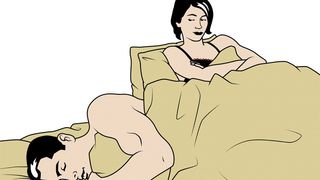
Some training questions are easy to answer – yes, you need to squat, and no, sit-ups don’t build a six-pack – but others aren’t so clear-cut. So we’ve combined cutting-edge science with practical experience to provide definitive answers to some of the most important questions about building muscle
Can I change my muscles from slow-twitch to fast-twitch?
The age-old question. Slow-twitch or type 1 muscle fibres are associated with endurance, while fast-twitch or type 2 fibres have more to do with power and explosiveness – and you can activate these through things such as weightlifting. These are further divided into type 2a (fast-twitch) and type 2x (super fast-twitch). But while experts tend to agree that fibres can change within their type – 2a can convert to 2x and vice versa – they’re still arguing about whether exercise can change type 1 to type 2 muscle fibres or the other way around. In fact, scientists have recently discovered another category – ‘hybrid’ fibres that have qualities of both slow- and fast-twitch. The consensus ? You’re probably born with a 50/50 split and exercise might be able to skew the balance by 10% one way or the other. Either way, you can build more of both types with training, so the ‘I’m just not built for lifting’ excuse is invalid.
Is booze making my gym sessions pointless?
You’re planning a big Friday night session, so is it worth hitting the gym at lunchtime or will the beers undo your hard work? Well, you’ve probably heard that alcohol lowers testosterone – but the effect isn’t that bad. Drinking 120g of alcohol (equivalent to 6.6 pints of 4% beer) can cause a 23% drop for up to 16 hours, but a study published in 2000 found that consuming 70g of alcohol after exercise had no effect on testosterone and little effect on the fattening hormone cortisol. There’s also scant evidence to show that moderate drinking increases post-exercise muscle damage or decreases strength. In short, pounding tequila after leg day isn’t advisable, but don’t worry about the odd pint.
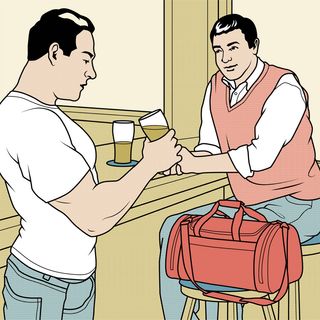
Can I drink coffee after training?
You’re in a post-gym afternoon slump, but will an Americano perk you up or further punish your already stressed system? ‘It depends on how well each person processes it,’ says Kit Baker, trainer at London gym Urban Kings (urbankingsgym.com). ‘Coffee is a stimulant and can provide a useful hormone boost, improving motivation, effort and metabolism – but today people are often overloaded with stress hormones before we even add the stress of exercise, let alone an extra espresso. If your body can’t cope with these stresses, this can lead to recovery problems and disturbed sleep. Post-workout coffee should probably be seen as a luxury reserved for those who can manage life’s physical and mental stresses.’
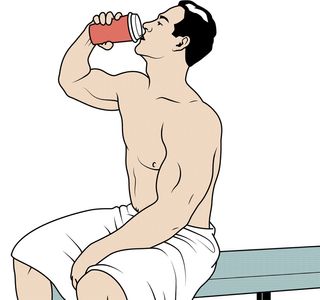
Should I train while I'm ill?
Power through your cold or ply yourself with soup and DVD box sets? Take a cue from pro sports teams: if it’s above the chest – ears, nose or throat – it’s OK to train, with slightly less intensity than usual. If it hits the lungs or below, stay in bed. That’s when dehydration becomes a problem and your immune system is under pressure. Adding training to the mix could push your body to breaking point.
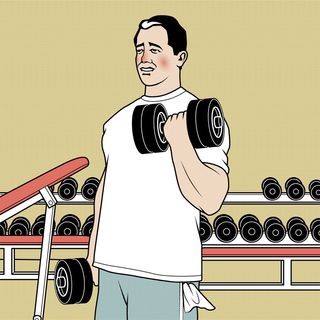
Does soreness mean my routine's working?
Short answer: no. There are various theories about what causes delayed-onset muscle soreness (DOMS), including lactic acid, connective tissue damage and inflammation. It’s probably a combination of several factors, but scientists largely agree that the main cause is doing something new. You might have a 200kg bench, say, but be destroyed by Zumba – and you can have a productive workout without being even slightly sore afterwards. You can also train when you’re sore – it may even help ease the pain.
What's the best music for a big chest session?
It’s fairly well established that matching the music’s BPM to your footsteps can improve your running, but what should you listen to during heavy lifting? It probably doesn’t matter, as long as you enjoy it. According to studies by Dr David-Lee Priest of Brunel University, music has its greatest benefit before you start and between sets. ‘It’s like taking a mild stimulant,’ says Priest. ‘It will increase your heart rate and blood pressure slightly.’ Our suggestion? Metallica for legs, NWA for chest.
Get the Coach Newsletter
Sign up for workout ideas, training advice, reviews of the latest gear and more.
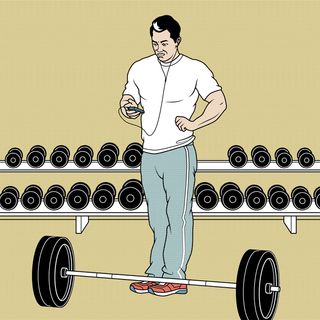
Will avoiding sex help me train harder?
Don’t count on it. Boxers from Muhammad Ali to Manny Pacquiao have stuck to celibacy before big fights, but Olympic gold medallist Ryan Lochte estimated that ‘70 to 75% of people’ in the 2012 Olympic village were doing the opposite, and UFC women’s champ Ronda Rousey says she tries to have as much sex as possible before a fight, because ‘for girls, it raises testosterone’. What does science say? Well, a University of Georgia study confirmed that sex does raise testosterone – for men and women – but it’s unclear if the effect is pronounced enough to up your deadlift.
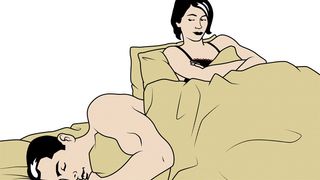
Once and for all, should I stretch before a workout?
The latest verdict is that it probably won’t injure you, but static stretching is unlikely to help your training. ‘If your aim is to lift something heavy, jump high or run fast, stretching first won’t help,’ says Baker. ‘In fact studies suggest that stretching before exercise will temporarily weaken your muscles, decreasing peak force production.’ That’s not to say you shouldn’t warm up, though. ‘Instead of static stretches, use the movements you’re about to train and gradually increase the range and load,’ Baker suggests. ‘If you’re about to squat 100kg, start with a broom handle and work your way up.’
From 2008 to 2018, Joel worked for Men's Fitness, which predated, and then shared a website with, Coach. Though he spent years running the hills of Bath, he’s since ditched his trainers for a succession of Converse high-tops, since they’re better suited to his love of pulling vans, lifting cars, and hefting logs in a succession of strongman competitions.

